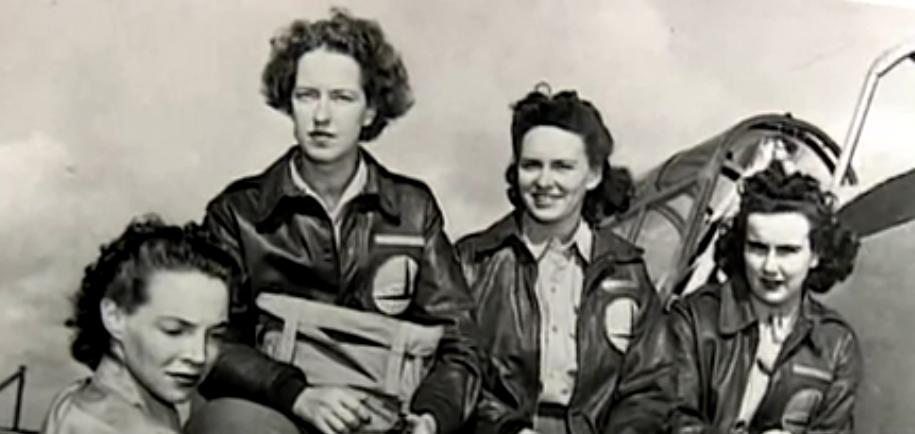Nashville Debutante Fights Imperial Japan May 15, 2012
Author: Beach Combing | in : Contemporary , trackback***With thanks to Larry***
A wish-i’d-been-there moment from 1941. Cornelia Fort was a twenty-three-year-old pilot and instructor flying a Cadet out of Honolulu in that year. Incredibly though CF had only been flying for a matter of months she was already deemed good enough to work as an instructor, putting a young Hawaiian through his paces. And that’s what she was doing at dawn on 7 December with the American Pacific fleet (thankfully minus Enterprise and Lexington) spread out below her.
In one of CF’s surviving letters she writes that she was happiest in her life behind the controls of a plane in the peaceful early morning sky. Well, of course, 7 December was to be anything but peaceful… Pearl Harbor has many memorable moments, not least the radar crew dismissing a splodge of red on their radars as birds and rushing off for breakfast. But for Beach this marvelously spirited flapper gliding into the Japanese attack beats them all.
Cornelia spotted a silver airplane surfing in from sea straight towards her. She, at first, registered irritation and then her instincts fired. She took the controls from her trainee and climbed as fast as the throttle would allow her. She was only just in time. The Japanese plane – its imperial insignia clearly visible – swept under her and rattled the civilian craft. If anyone doubts that she was in terrible danger consider this: as she landed another instructor and trainee were torn apart on a Japanese strafing run.
Cornelia Ryan was only at Honolulu through a technicality. The youngest of four children from a wealthy Nashville family, Cornelia’s father had, many years before, called her three brothers into his study and had required them to give their oath on the Bible that they would never fly. The old patriarch did not believe for a moment that Cornelia, a girl, would take to the air, though that what is she did in 1940, the year of his death. When one of her brothers objected she pointed out that she had never been asked to swear to anything: even if she had watched from the hall as the oaths were given. Cornelia had a point.
As to flying she was a natural. This skill would take her to Hawaii and then into the wartime air-force (she is pictured above, the highest of the four with a raw, natural beauty) where women ferried military planes from one part of the country to another. Her talent would finally take her to her death in 1943 when she was caught up in a mid-air collision while in Texas. CR was to be the first woman to die on active service in the US armed forces.
Today an airfield is named after her, she appears fleetingly in Tora! Tora! and there is a book Daughter of the Air. For a short, though charming documentary, hop over to Youtube and for a longer article visit the Airspace Magazine.
Beach is always on the look out for Wish I’d Been There Moments: drbeachcombing AT yahoo DOT com
***
23 May 2012: Nathaniel writes in A quibble with your “Nashville Debutant Fights Imperial Japan” post’s statement about a radar crew mistaking the incoming Japanese planes for a flock of birds. Per Wikipedia: “As the first wave approached Oahu, a U.S. Army SCR-270 radar at Opana Point near the island’s northern tip (a post not yet operational, having been in training mode for months) detected it and called in a warning. Radar had been in use in a training mode by the U.S Army Hawaiian Department for some time, but was not fully operational.[62] Although the operators, Privates George Elliot Jr. and Joseph Lockard,[63] reported a target, a newly assigned officer at the thinly manned Intercept Center, Lieutenant Kermit A. Tyler, presumed it was the scheduled arrival of six [U.S.] B-17 bombers. The direction from which the aircraft were coming was close (only a few degrees separated the two inbound courses),[64] while the operators had never seen a formation as large on radar;[65] they neglected to tell Tyler of its size,[66] while Tyler, for security reasons, could not tell them the B-17s were due[66] (even though it was widely known).[66]” Lt. Tyler was cleared of wrongdoing because he was newly assigned and had not been trained. Somewhat more complicated than your post implies, and one of the many misfortunes of war.” thanks Nathaniel



